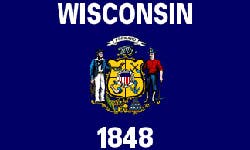If you qualify for Medicare and need prescription drug coverage, it is important that you know Medicare Parts A and B (also known as Original Medicare) do not cover medications. To cover prescription drug costs, you need a Medicare Part D plan.
What is Medicare Part D in Wisconsin?
Medicare Part D is how you get prescription drug coverage through Medicare. You can either sign up for a standalone Part D plan, or a Medicare Advantage Prescription Drug (MA-PD) plan. While most Medicare Advantage plans do come with prescription drug coverage, you need to make sure it is an MA-PD plan to get this benefit.
Both standalone Part D and MA-PD plans are offered through private insurance companies contracted with Medicare in Wisconsin, so costs and medications covered vary based on the insurer you choose.
Medicare Part D requirements in Wisconsin
As long as you are enrolled in Medicare Part A and/or Part B, you are eligible to sign up for Medicare Part D. You must meet any desired plan's requirements as well, though typically the only requirement is living in the service area.
When can you enroll in Medicare Part D in Wisconsin?
There are set time periods you can sign up for Medicare in Wisconsin.
- Initial Enrollment Period (IEP): Beginning three months before the month of your 65th birthday and lasting the three months that follow, this seven-month period is the first time you can sign up for Medicare. You can enroll in a Part D plan once you have signed up for one or both parts of Original Medicare.
- General Enrollment Period (GEP): From January 1 through March 31, this is the time to sign up for Medicare if you missed your IEP, though you cannot sign up for Part D coverage. However, you can join a Part D or MA-PD plan between April 1 and June 30.
- Annual Enrollment Period (AEP): If you are a current Medicare beneficiary, you can make changes to your current coverage every year from OCtober 15 through December 7.
- Medicare Advantage Open Enrollment Period (OEP): Between January 1 and March 31, you can switch between Medicare Advantage plans or go back to Original Medicare. You may only sign up for a new Part D plan if the changes you make during this period result in a loss of prescription drug coverage.
Beyond these set times, you must qualify for a Special Enrollment Period (SEP) to sign up for Medicare products. For a full list of special circumstances, click here.
Comparing Medicare Part D plans in Wisconsin
As you look for the perfect Medicare Part D plan, it is necessary to balance your budget needs with the coverage offered by different insurers.
First, make sure to check each prospective plan's formulary, the tiered list of prescription drugs a plan will cover. Medications in higher tiers typically come at higher costs, so make sure you don't just pick the first plan with your prescription; there may be a lower cost option.
Also be sure to make sure any deductible or monthly premium is manageable. Low-cost medications don't help your budget if your other costs are substantially higher. If resources are limited, you may qualify for the Medicare program Extra Help, which covers costs associated with Medicare Part D drug plans.
What happens if you don't enroll in Medicare Part D in Wisconsin?
While Medicare Part D coverage is not mandatory in Wisconsin or anywhere else in the U.S., it is still important to enroll. If you do not have creditable coverage elsewhere (coverage that is considered equal to Medicare offerings in both cost and scope of coverage), you run the risk of lifelong late fees.
Once you go 63 days or more without Medicare Part D or creditable coverage, you start earning late fees. These fees are paid in addition to your monthly premium for the duration of the time you have Medicare Part D.
